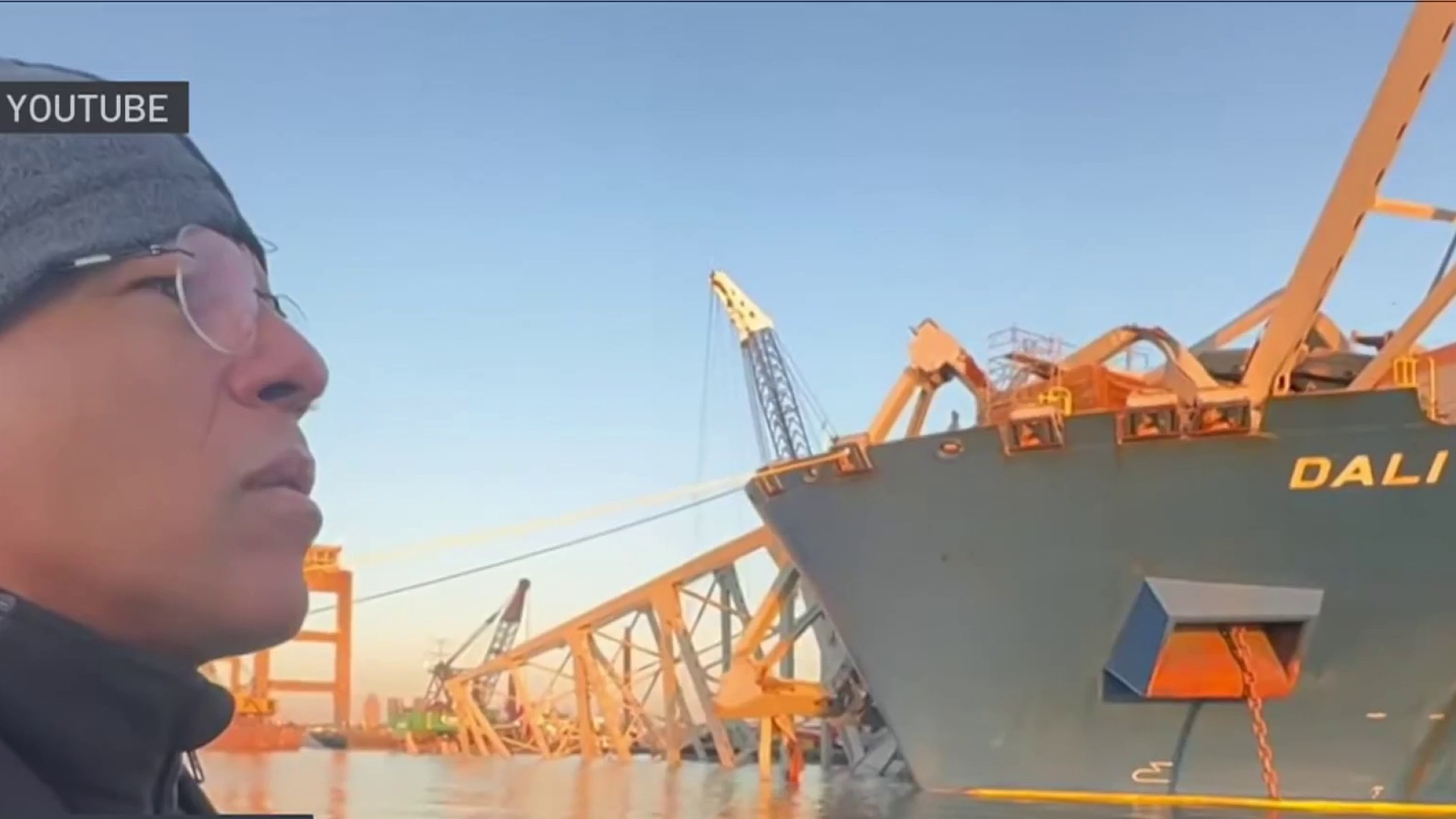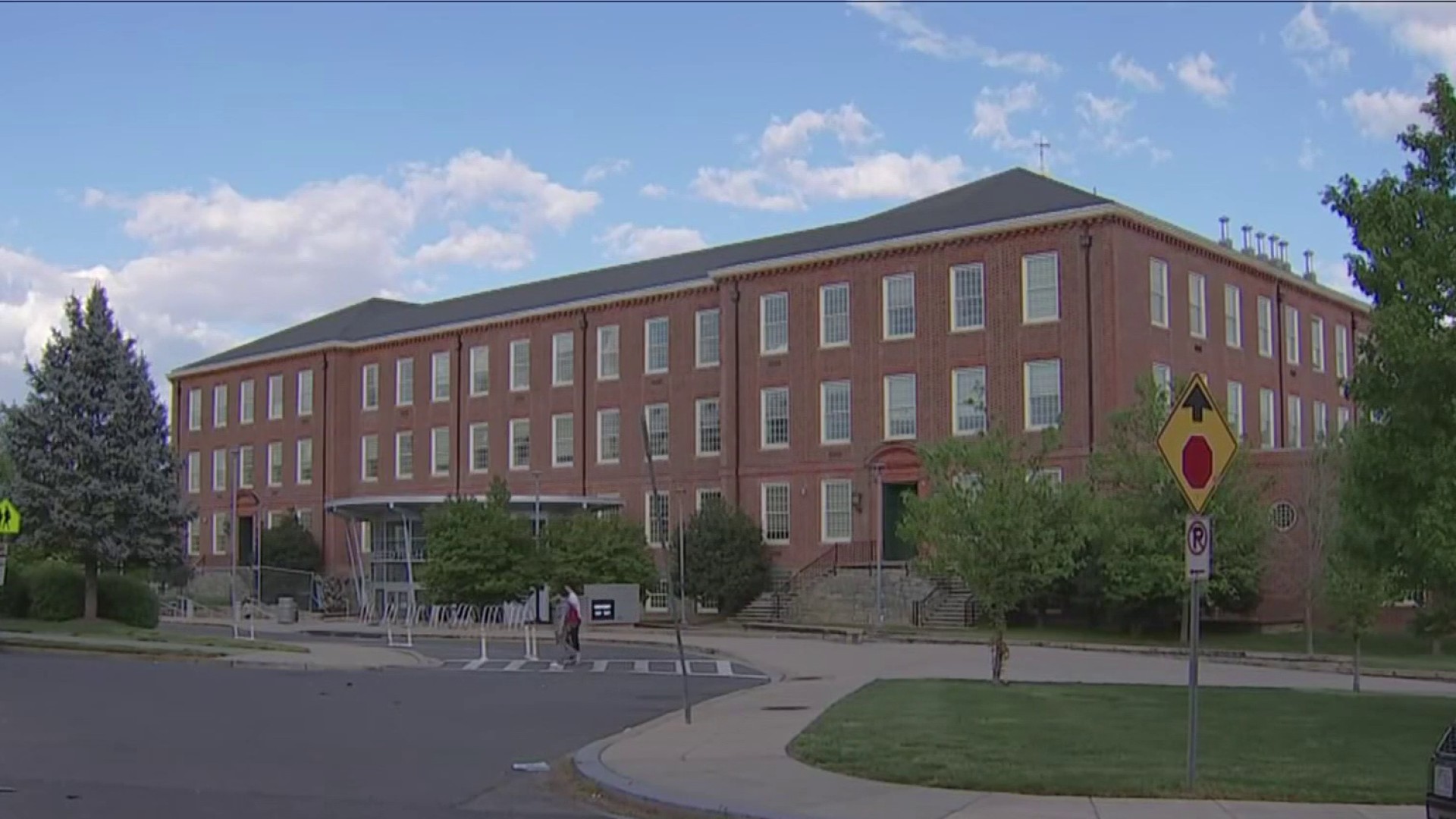The new chairman of the D.C. Fraternal Order of Police hopes to improve the union's relationship with the chief.
"New blood; new ideas; a younger, fresher face," is how Jimmy White, a six-year member of the Metropolitan Police Department and newly elected secretary of the police union, describes the union's new leadership.
That "new blood" is headed up by Sgt. Matthew Mahl, who was elected chairman of the union in January by a 2-to-1 margin. Mahl said the union won't be playing politics, and he hopes its relationship with Chief Cathy Lanier will result in more money and a shorter work week for officers.
Mahl took over as chairman of the D.C. Fraternal Order of Police April 1. At union headquarters in Southeast, he told News4 the union will no longer endorse candidates for political office -- a practice that has become routine for police and other unions in the District.
"As of right now, we're not going to," Mahl said. "I don't think it's the job of the police union to support candidates running for office."
Mahl noted that just after taking over as union chairman, some elected officials pointed out that his union had endorsed their rivals.
"Right now, what we have to do as a police union is rebuild these relationships," Mahl said. "If I support a candidate that doesn’t win, the candidate that I opposed, if they get into office, is less likely to work with me. So the police union will look forward to working with any candidate that gets elected into office."
Local
Washington, D.C., Maryland and Virginia local news, events and information
Mahl said he has yet to meet with Mayor Muriel Bowser, but they have spoken by phone. The previous union leadership did not endorse Bowser or Council Chairman Phil Mendelson.
Flanked by his vice chairman, Stephen Bigelow, Jr., and Secretary White, Mahl described his relationship with Chief Lanier.
"We have a, we have a relationship which is something that I’m happy to have," Mahl said. "We have conversations. If there's an issue, she will call me. If I have an issue, I can call her. And we do that on almost a daily basis.”
Mahl, who will celebrate 12 years with MPD next week, said he knows the relationship between the union and the chief hasn't been good in the past.
"Over the last several years, eight to nine years, there’s been a largely adversarial relationship between the police union and the department," Mahl said. "That’s something that absolutely has to change.”
His vice chairman agrees.
"We’re starting fresh," Bigelow said. "This is a new group of leaders in the union. We’re going to start fresh and start telling you how great our officers are."
Bigelow pointed out that repairing relationships between labor and management and labor and elected officials isn’t the only PR work needed.
"We need to do a better job as a union to engage the public, to let them know, you have a treasure in here with these officers and what they’re doing,” Bigelow said. "These officers are all in. They’re not just coming here to get a paycheck. They're working with the community to solve the problems the community is having."
As for Mahl, he knows labor and management won't always agree.
"I know for a fact that we won't always get along," he said. "But there are ways to have your disagreements or have your arguments behind closed doors then face a united front to the public and the agency.”
That would be a change from how Mahl's predecessors interacted with Lanier. Delroy Burton and Kris Baumann, who held the chairman's position over the past several years, were known for openly criticizing Lanier at public hearings and in the press.
"Without the two groups working together, there’s no way we can rebuild the morale in this agency and retain the officers that we have," Mahl said. "We’re in the retirement bubble right now. We’ve known it was coming for years. Every officer we get is an officer we have to keep."
In fact, Baumann first sounded the alarm about the pending retirement bubble years ago.
There are issues where Mahl and Lanier seem poised to disagree. On the practice of "all hands on deck," where Lanier has canceled vacations and days off to flood the streets with cops, Mahl, like his predecessors, stands opposed.
"The AHODs are something the chief and I have not talked about yet," Mahl said. "It is the union's stance that it does violate our collective bargaining agreement, and we’re moving forward on those cases."
Another point of contention may come when the two sides have to sit down to negotiate a new labor contract. The union represents about 3,500 members, many of whom the union says don’t make enough money to live in the District.
"Priority No. 1 for our members is scheduling and money, so if you want a happy cop, you got to give them better schedules and better money," White said.
In addition to asking for better pay, White said they will ask for a four-day work week.
"It’s going to be an amalgamation of the stability of the schedule and the possibility of having a four, 10-hour scheduled work week," White said. "Our contract is up in 2017. I would love to just start the negotiations this year, so we don’t have to worry about the issues we had with our last collective bargaining agreement. So we can hammer out those issues that will be a little bit of a tough pill for the department to swallow."
Mahl said he has another priority as chairman. The union has almost 100 grievances pending with the department. Many have been before the Public Employees Relations Board for as long as seven years, Mahl said.
"The police union has to work with the department in getting these cleaned up," Mahl said. "I'm happy to say just in the first week the chief and I have settled five cases already."
Mahl hopes that working relationship with Lanier will payoff in other negations as well.
"I hope that with the new relationships that the police union has built with the agency we would be able to settle some of these cases outside of court and come to an amiable agreement when it comes to AHOD and large events like that," Mahl said.
Mahl said having union leadership that gets along with management will actually make the streets safer.
"A higher level of morale within the department," Mahl said. "A happy cop is going to go out there and do his job. An unhappy cop is going to pout and mope around. Happy cops work more and crime can be reduced that way."



